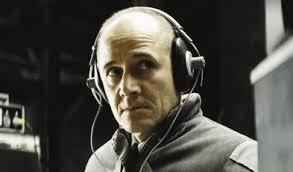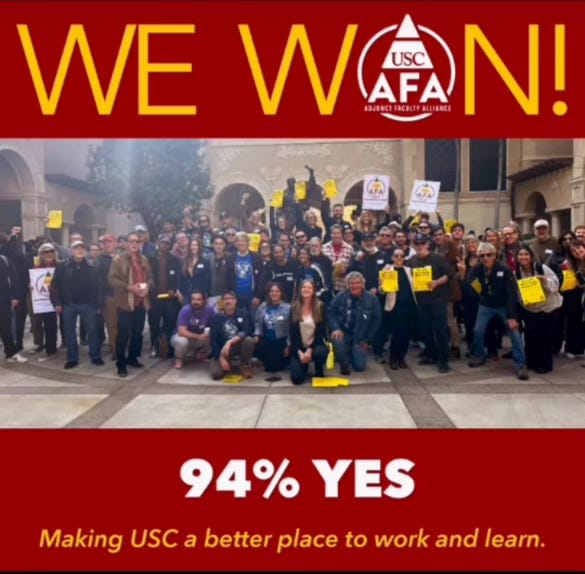"THE LIVES OF OTHERS" INFLUENCES THE LIVES OF OTHERS (Free Post)
The Personal is Political in Films and at USC
If you know me, you know how much I love the German film The Lives of Others. I have seen it countless times and will see it many more until the final plug is unplugged. I've never seen a film that significantly impacted me quite as much. I don't think I'm alone. A cursory search of reviews, articles, and stories corroborates the kind of impact it had not only on filmgoers but also on the public. I even have its simple but powerful score on my iPhone.
I've also become ever more fascinated with Germany since our trip to Berlin last summer. The Germans' willingness to confront their history, regardless of the consequences- is unique. Other than South Africa with its Truth and Reconciliation Commission, what other country laid its ugly history bare before the world?
The Lives of Others embodies the old saw that "the personal is political." It's about ideology, collaboration, opportunism, fear, and courage, elements familiar to many, and a confrontation between human nature and authoritarian power. It couldn't be more relevant than it is today. It demonstrates how easily a society can succumb to totalitarianism if that society lacks music and the arts. I don’t want to say more, because there’s nothing I love more than discovering a film. I don’t read reviews in advance. To the extent possible, I want to be a blank slate – and want the same for you. No preconceived ideas!
I haven't seen the film recently (although I do listen to its soundtrack in between viewings) and decided to investigate the origins of the story beyond the broad strokes I already knew, i.e., the debut writer-director Florian Henckel von Donnersmarck won countless awards all over the world. What I didn't know was what precisely inspired the film.

Guess what?! I've been writing about it in my columns (if you read and subscribe, then you know: Music!
The writer intended his film as a tribute to the power of music. Although I didn't write or direct the movie, I left a considerable amount of money at the box office, so I'd like to expand the tribute to include the arts: books, theatre, etc., as well as the movies. They are what make us human. They speak to us in ways nothing else can. They enrich our lives; if deprived, we lose our humanity and can easily fall victim to totalitarianism.
Henckel von Donnersmarck said, "Music can bring feelings into your life whether you want it to or not. There is no way you can defend yourself against it. You can't build a wall of principle or ideology against it. It will go through it like an X-ray. It just has that power."
Garvin says, "Bingo." Music is an arrow shot directly into the heart!
One of the most frequent questions new writers ask me is how to find what to write about. I'll let the German screenwriter of The Lives of Others answer it.
"I was lying on the floor feeling miserable and thinking, 'Oh, I've picked the wrong profession,'" he said. "Then I started listening to music and remembered Maxim Gorky, who quoted Lenin as saying that Beethoven's 'Appassionato' was his favorite piece of music. But Lenin said, 'I don't want to listen to it because it makes me want to stroke people's heads, and I have to smash those heads to bring the revolution to them.'"
At that moment, The Lives of Others was born. The writer went on to say, "I suddenly had this image in my mind of a person sitting in a depressing room with earphones on his head and listening in to what he supposes is the enemy of the state and the enemy of his ideas, and what he is hearing is beautiful music that touches him."
When it first came out, I took a reluctant group of film students to see the movie in 2006. Pan's Labyrinth was at the same theatre. One of the benefits of being a professor is control. These nineteen-year-old kids had never seen a foreign language film, let alone a political one. They begged me to let them see Pan's Labyrinth. I'd seen it and thought it was terrific, but they could see it on their dime. As it turned out, they walked out of The Lives of Others, speechless. Their faces said more than words. Several thanked me and expressed their appreciation for being introduced to the film.
Henckel von Donnersmarck cleverly weaves history in with his memories of visiting relatives in East Berlin, where his parents once lived, and the attendant anxiety accompanying those visits. Witnessing fear in adults fascinated and mystified him. After the Berlin Wall and the truth of what happened in East Germany revealed itself, his memories and four years of research led to one of the most memorable and influential films ever made. It deepened the national conversation in Germany, helping its citizens confront another terrible historical episode.
It would've been easy to make a polemical film with one-dimensional characterization. The empathy and respect Henckel von Donnershmarck shows his characters enable us to understand their inner emotional life and conflict. Its politics are revealed through the character's actions. Even the smallest detail reveals something interesting about the people who populate the story. The subtle transformation of the characters throughout the film adds to its authenticity.
"It shows, with excruciating precision, the cruelty with which a totalitarian state can exploit the weakness and confusion of its citizens. And even as they are, to some extent, enacting a morality play, the actors seem like real, vulnerable people forced into impossible choices." A.O. Scott, New York Times, 2/9/2007).
Garvin says, "Given the current state of the world, it behooves us to take a closer look." (a closer look at what?)
VICTORY - AT LONG LAST!
I've been an activist most of my life. I met my husband of 50 years as an organizer against the Vietnam War. I've been an election monitor in Nicaragua, a lead plaintiff in a lawsuit that exposed an illegal operation of spying against antiwar activists in Michigan, was arrested during Occupy Wall Street, etc. In recent years, I've seen most victories where I and others fought fiercely to achieve evaporation. I've grown increasingly cynical and reluctant to put much time into (new?) other? causes. But I couldn't sit on the sidelines when the adjuncts at the University of Southern California, where I've taught screenwriting for nearly two decades, came together to try and unionize the School of Cinema Arts. I reluctantly began attending meetings and getting involved in the union organizing effort.
I hadn't had such a positive experience advocating for an issue since Occupy Wall Street, and that had imploded. The energies and commitment of USC adjuncts, under the auspices of the UAW, blew me away
.
Most of the organizers, in and out of the union, are much younger than I and, despite not having a lengthy history in advocacy, are nonetheless fantastic organizers. Their dedication inspired me to step up to the plate and do my part. When the dust settled, we won 94% of the vote and provided a glimmer of hope for a brighter future – and not just at USC.
Having grown up in Detroit, the UAW was autoworkers. That's no longer the case. The UAW is now the primary organizer of adjuncts around the country. Under the leadership of Shawn Fain, they saw a need and filled it. The UAW has single-handedly revitalized the labor movement. USC administration had dismissed our decision to align ourselves with "auto workers." But somebody didn't do their homework! UAW represents over 100,000 academic workers across the country!
I only knew a handful of people during all the years I've been at USC. I, and most adjuncts, went to school, taught our class, and went home. We rarely bumped into one another, let alone built friendships. The union effort brought people together in a way teaching never has. We're no longer names on the roster of the School of Cinema Arts; we're colleagues, friends, and comrades. SOLIDARITY is back!






